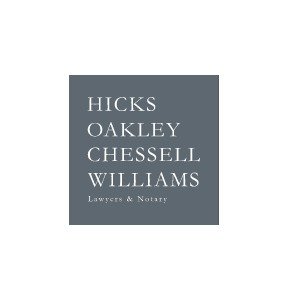Best International Trade Law Lawyers in Mount Waverley
Share your needs with us, get contacted by law firms.
Free. Takes 2 min.
List of the best lawyers in Mount Waverley, Australia
About International Trade Law in Mount Waverley, Australia
International Trade Law in Mount Waverley, a suburb of Melbourne, Australia, encompasses the regulations and legal principles that govern the exchange of goods and services across international borders. As a vibrant business hub within Australia, Mount Waverley sees various international trade activities, necessitating a clear understanding of both domestic and international trade regulations. This area of law covers diverse aspects such as customs, trade agreements, tariffs, and anti-dumping regulations.
Why You May Need a Lawyer
Engaging with International Trade Law can be complex, particularly due to the intricate regulations and the potential for legal disputes. Here are common situations when you might require legal help:
- Negotiating and drafting international trade agreements.
- Navigating complex customs procedures and compliance issues.
- Addressing disputes or breaches of contract involving international trade partners.
- Understanding import/export regulations and licensing requirements.
- Dealing with tariff and non-tariff barriers.
- Engaging in anti-dumping or countervailing duty cases.
- Complying with international trade sanctions.
Local Laws Overview
In Mount Waverley, as in the rest of Australia, International Trade Law is governed by both federal laws and international agreements. Key legal components include:
- The Customs Act, which regulates the import and export of goods.
- The regulatory framework under the Department of Foreign Affairs and Trade, which manages trade agreements.
- Australian Competition and Consumer Commission (ACCC) guidelines, which ensure fair trade practices.
- The Export Control Act, overseeing controlled goods and sanctions compliance.
Frequently Asked Questions
1. What is International Trade Law?
International Trade Law refers to the rules and regulations that dictate economic transactions between countries, including the trade of goods, services, and intellectual property.
2. How can a lawyer assist with customs issues?
A lawyer can help interpret customs regulations, ensure compliance, and assist in resolving disputes or discrepancies with customs authorities, ensuring a smooth import/export process.
3. What are trade tariffs, and why are they important?
Trade tariffs are taxes imposed on imported goods. They are crucial as they affect the pricing of goods and can impact trade relations and profitability.
4. What should I do if I suspect a breach of contract in an international trade agreement?
You should seek legal advice immediately to understand your rights, evaluate the breach, and potentially pursue litigation or mediation to resolve the issue.
5. How do international trade agreements affect my business?
Trade agreements can alter market access, determine tax liabilities, and influence the regulatory environment, thereby impacting how your business operates internationally.
6. What are anti-dumping laws?
Anti-dumping laws are designed to prevent the importation of goods at unfairly low prices, protecting domestic industries from foreign competition that might harm local markets.
7. Can a trade dispute be settled out of court?
Yes, many trade disputes can be resolved through negotiation, arbitration, or mediation, avoiding the need for litigation, which can be costly and time-consuming.
8. What is the role of the World Trade Organization in trade law?
The WTO establishes global trade rules, facilitates negotiations, and resolves disputes between member states, thus playing a key role in international trade law.
9. Do I need to register my business with any local body to engage in international trade?
Yes, depending on your activities, you may need to register with the Australian Business Register and acquire specific licenses or permits for trading certain goods.
10. What are non-tariff barriers?
Non-tariff barriers are trade restrictions that don’t involve tariffs, such as quotas, embargoes, sanctions, and quality conditions imposed by governments on imports and exports.
Additional Resources
If you're seeking legal advice in International Trade Law, consider these valuable resources:
- Department of Foreign Affairs and Trade (DFAT)
- Australian Trade and Investment Commission (Austrade)
- Australian Customs and Border Protection Service
- World Trade Organization (WTO)
- Local law libraries or legal aid services for specific legal literature
Next Steps
If you require legal assistance, follow these steps to find the right support:
- Research and identify qualified international trade lawyers in Mount Waverley.
- Prepare a list of questions or concerns relevant to your situation.
- Consult with a legal advisor to discuss your needs and explore potential solutions.
- Consider engaging a lawyer with experience in your specific area of interest or dispute.
- Ensure all legal agreements and documentation are reviewed by a professional to mitigate risks and ensure compliance.
Lawzana helps you find the best lawyers and law firms in Mount Waverley through a curated and pre-screened list of qualified legal professionals. Our platform offers rankings and detailed profiles of attorneys and law firms, allowing you to compare based on practice areas, including International Trade Law, experience, and client feedback.
Each profile includes a description of the firm's areas of practice, client reviews, team members and partners, year of establishment, spoken languages, office locations, contact information, social media presence, and any published articles or resources. Most firms on our platform speak English and are experienced in both local and international legal matters.
Get a quote from top-rated law firms in Mount Waverley, Australia — quickly, securely, and without unnecessary hassle.
Disclaimer:
The information provided on this page is for general informational purposes only and does not constitute legal advice. While we strive to ensure the accuracy and relevance of the content, legal information may change over time, and interpretations of the law can vary. You should always consult with a qualified legal professional for advice specific to your situation.
We disclaim all liability for actions taken or not taken based on the content of this page. If you believe any information is incorrect or outdated, please contact us, and we will review and update it where appropriate.









